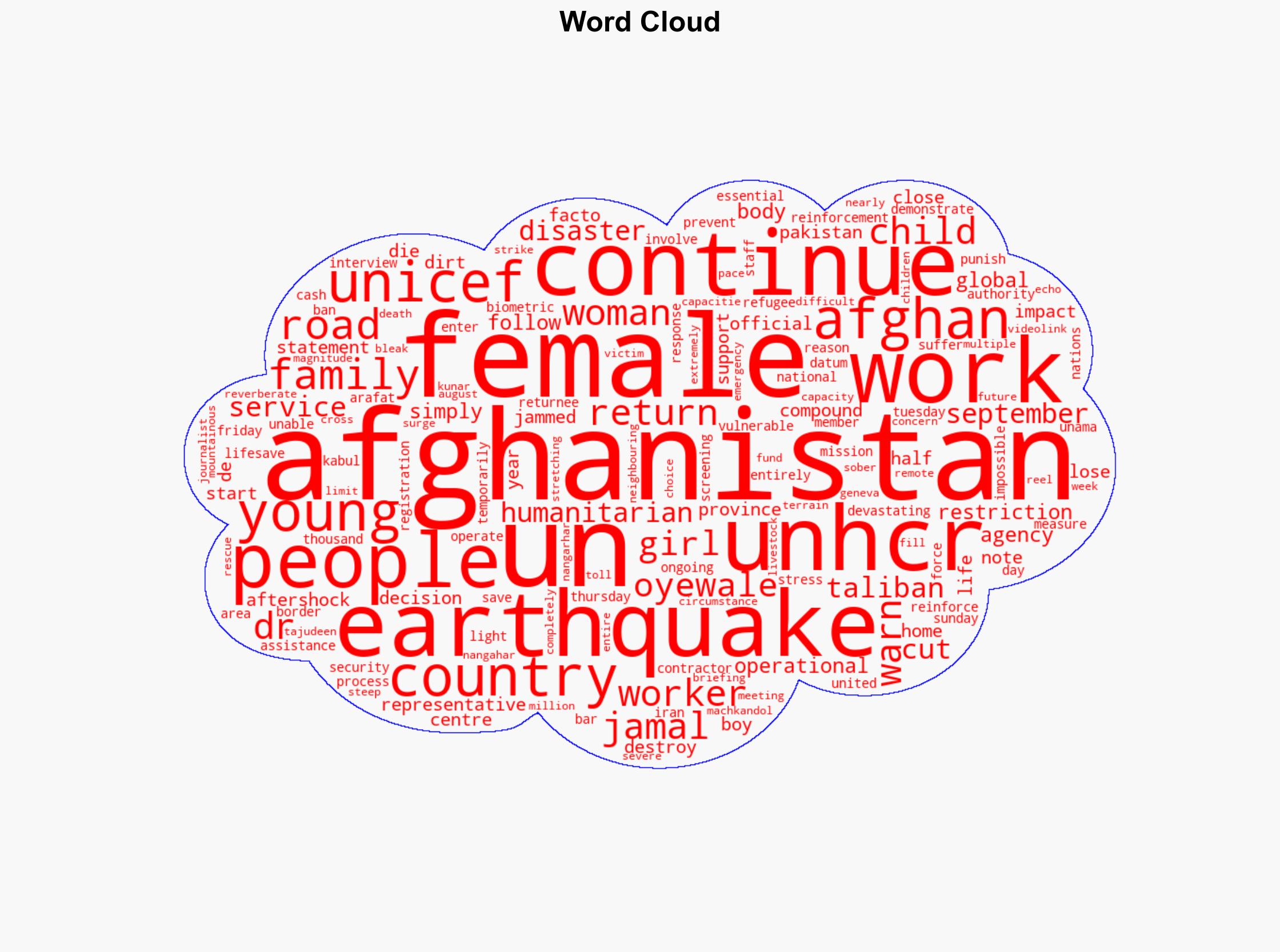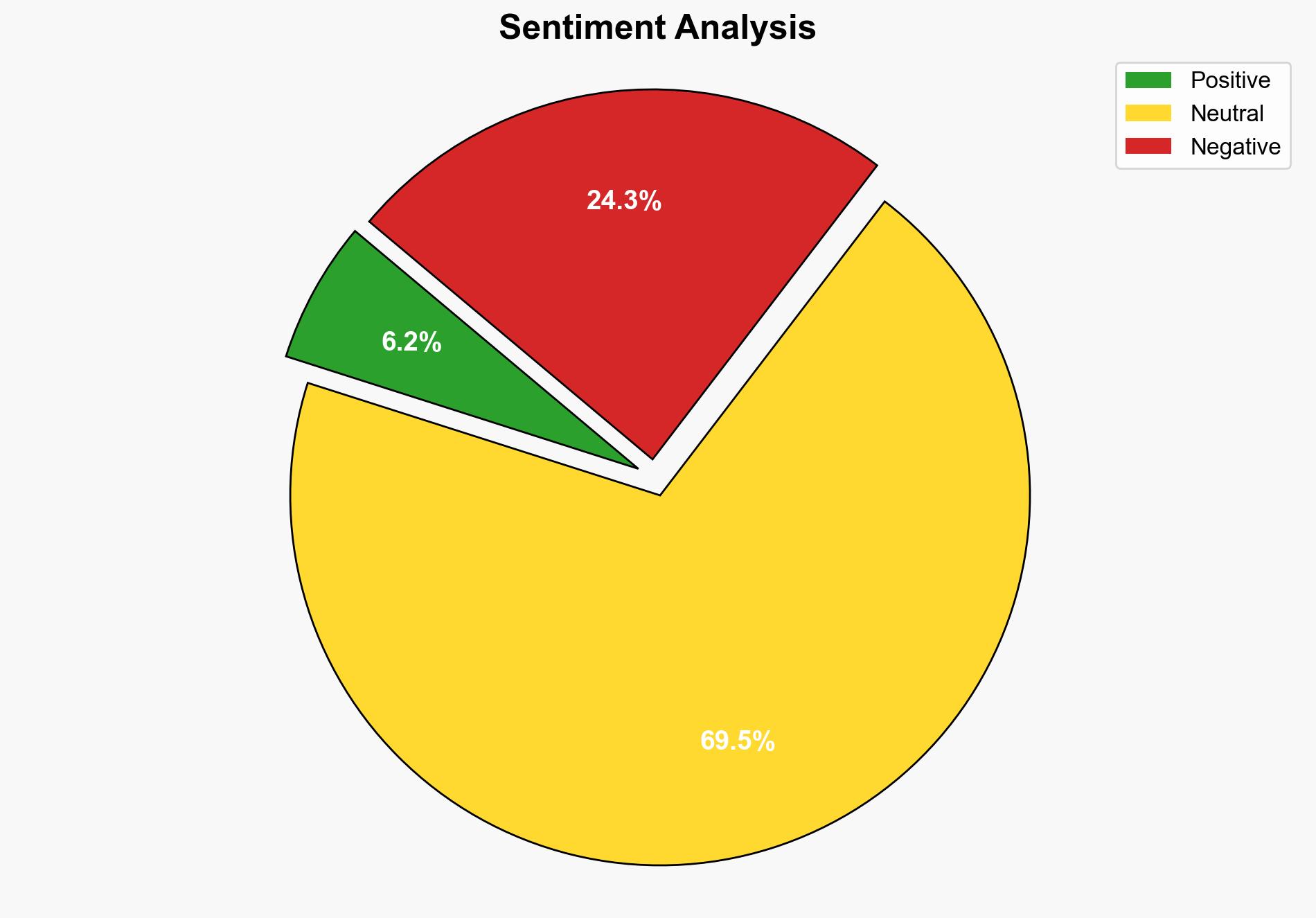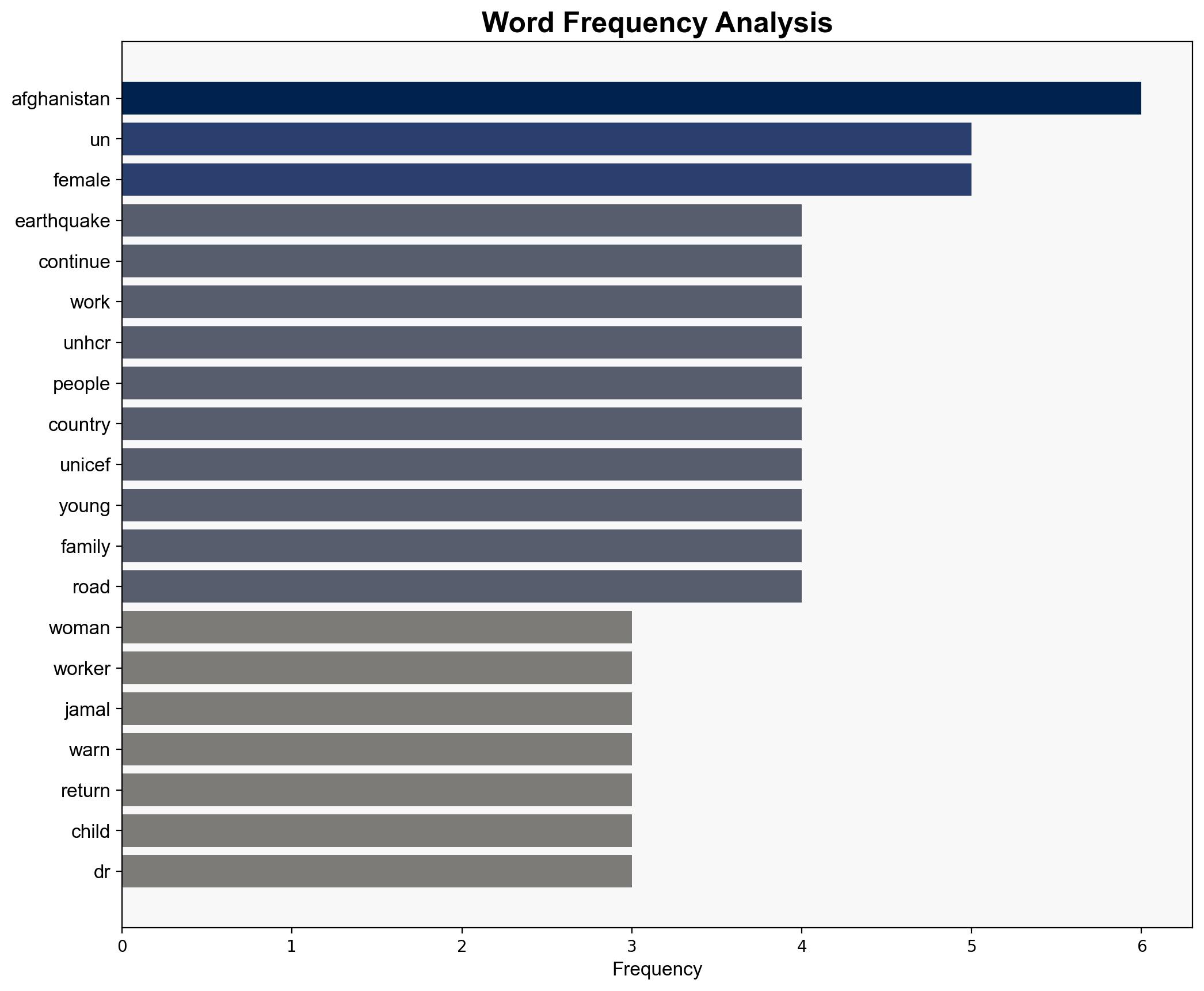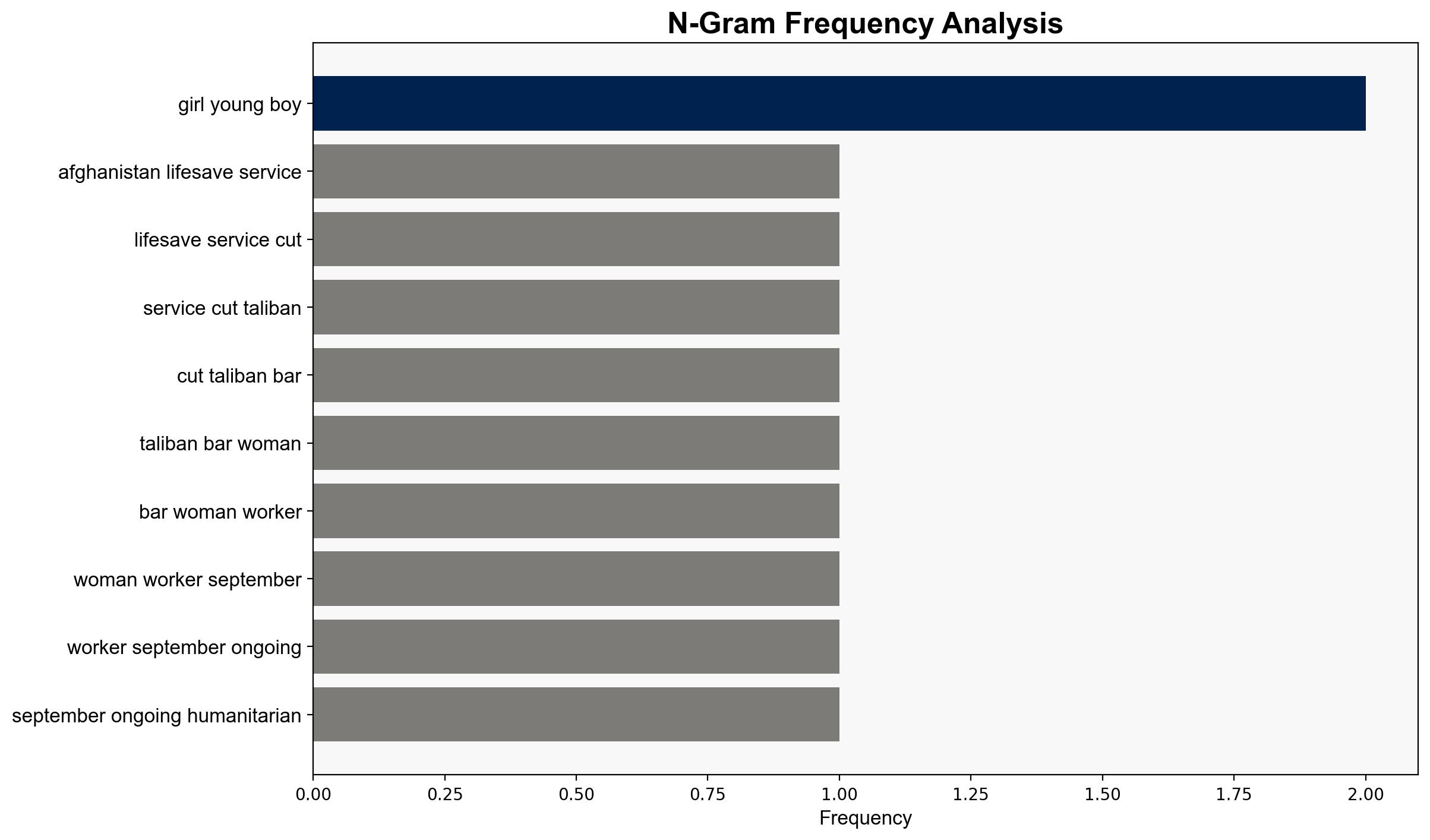Afghanistan Lifesaving services cut as Taliban bars women aid workers – Globalsecurity.org
Published on: 2025-09-13
Intelligence Report: Afghanistan Lifesaving services cut as Taliban bars women aid workers – Globalsecurity.org
1. BLUF (Bottom Line Up Front)
The restriction on female aid workers by the Taliban has severely impacted humanitarian operations in Afghanistan, particularly in response to recent earthquakes. The most supported hypothesis is that the Taliban’s enforcement of gender restrictions is a strategic move to consolidate internal control, despite international pressure. Confidence level: Moderate. Recommended action: Increase diplomatic engagement and leverage international aid to pressure policy changes.
2. Competing Hypotheses
Hypothesis 1: The Taliban’s restrictions on female aid workers are primarily ideological, reflecting their commitment to conservative gender norms despite humanitarian needs.
Hypothesis 2: The restrictions are a strategic maneuver to assert control over international aid operations, potentially using them as leverage in negotiations with global entities.
Using the Analysis of Competing Hypotheses (ACH) 2.0, Hypothesis 2 is better supported. The Taliban’s history of using policy as leverage and the timing of these restrictions amidst international negotiations suggest a strategic motive.
3. Key Assumptions and Red Flags
Assumptions include the belief that the Taliban’s actions are solely ideologically driven and that international pressure will lead to policy changes. Red flags include the lack of direct communication from the Taliban regarding their intentions and the absence of alternative aid strategies that bypass these restrictions.
4. Implications and Strategic Risks
The restrictions could exacerbate humanitarian crises, leading to increased regional instability. There is a risk of further alienating international donors, potentially reducing aid inflows. The situation may also embolden other restrictive regimes to adopt similar policies.
5. Recommendations and Outlook
- Engage in multilateral diplomatic efforts to pressure the Taliban to lift restrictions, emphasizing the humanitarian impact.
- Develop contingency plans to deliver aid through alternative channels, possibly involving local NGOs.
- Scenario projections:
- Best Case: Taliban lifts restrictions following international pressure, allowing aid operations to resume fully.
- Worst Case: Restrictions remain, leading to a severe humanitarian crisis and increased regional instability.
- Most Likely: Partial lifting of restrictions with continued international negotiations.
6. Key Individuals and Entities
Arafat Jamal, UNHCR representative in Afghanistan; Dr. Tajudeen Oyewale, UNICEF country representative in Afghanistan.
7. Thematic Tags
national security threats, humanitarian crisis, regional stability, gender rights, international diplomacy





